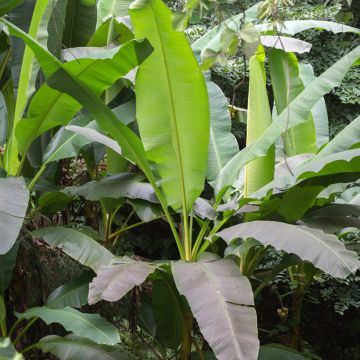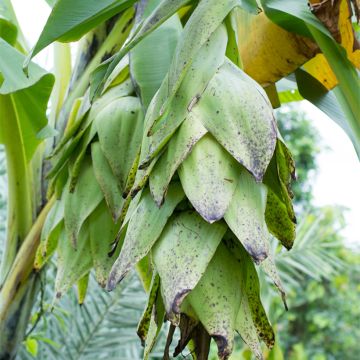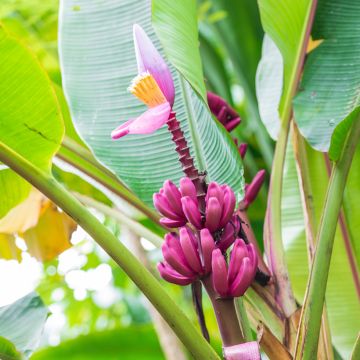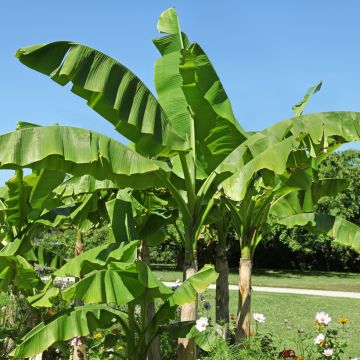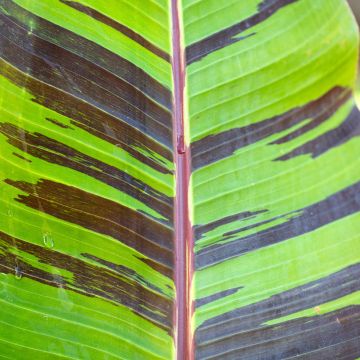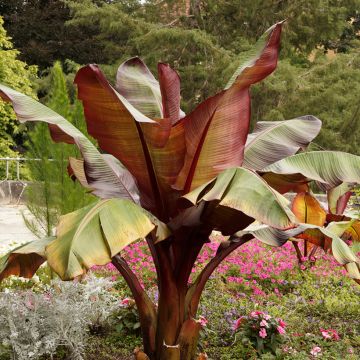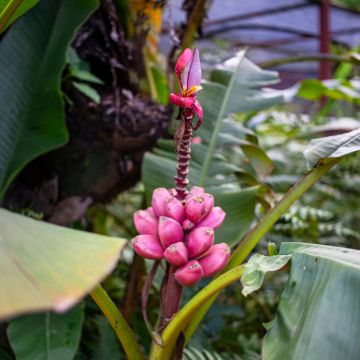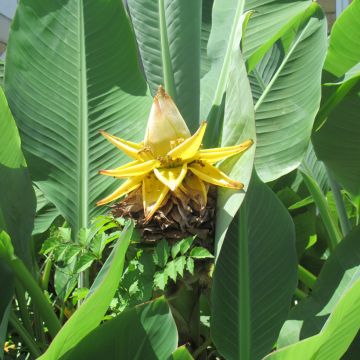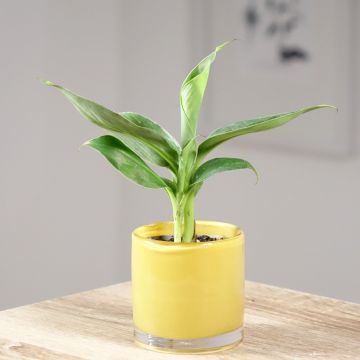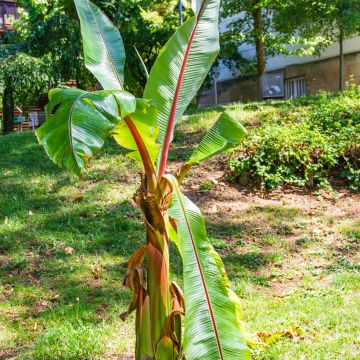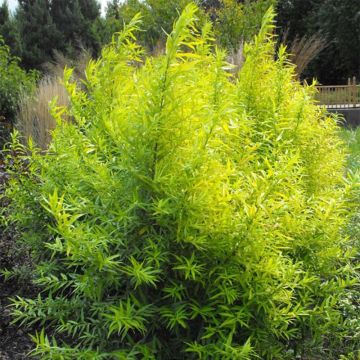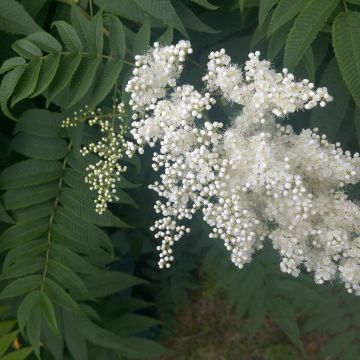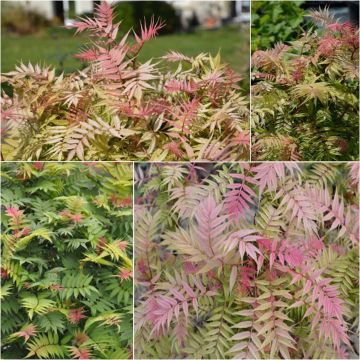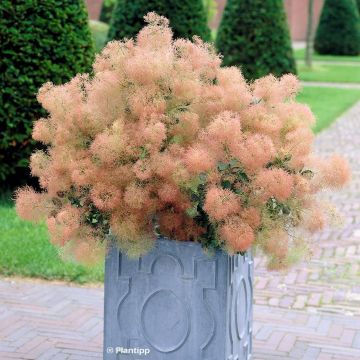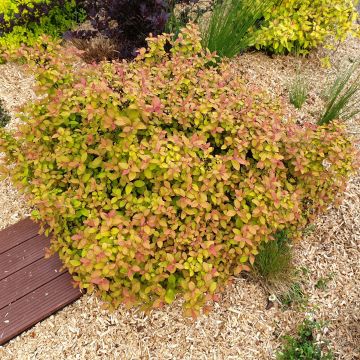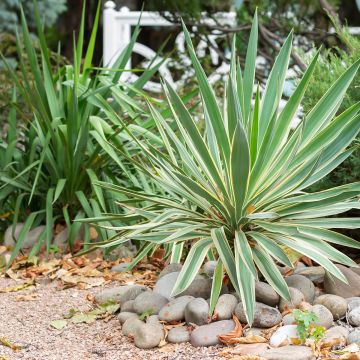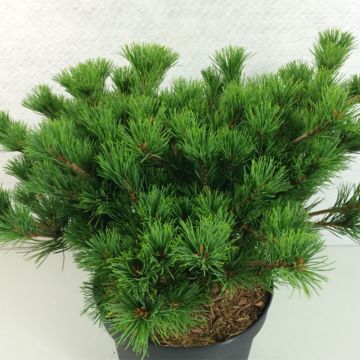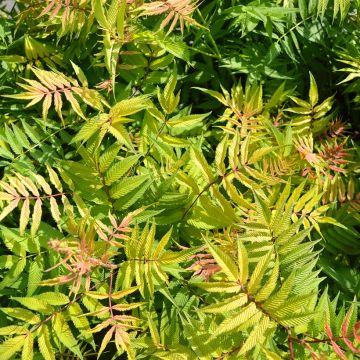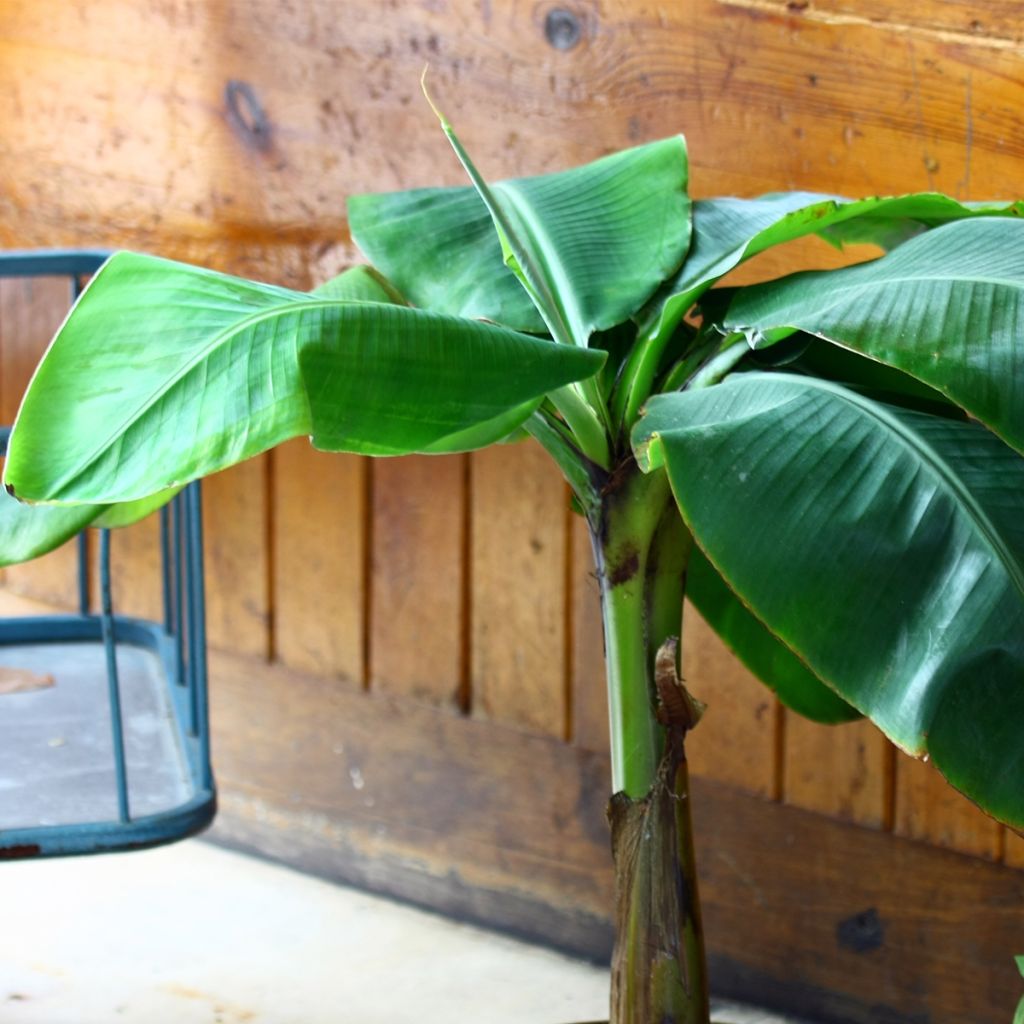

Musa japonica Tchetchenia - Bananier du Japon
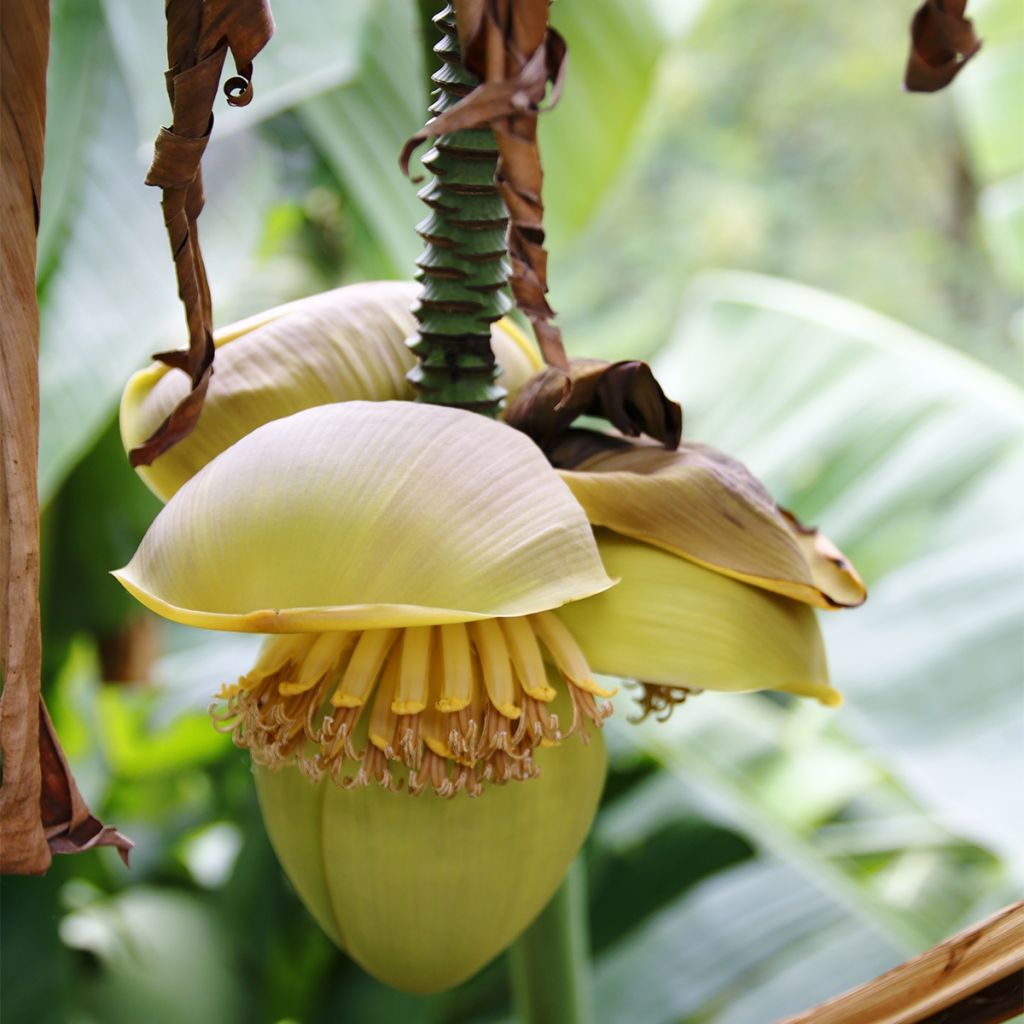

Musa japonica Tchetchenia - Bananier du Japon
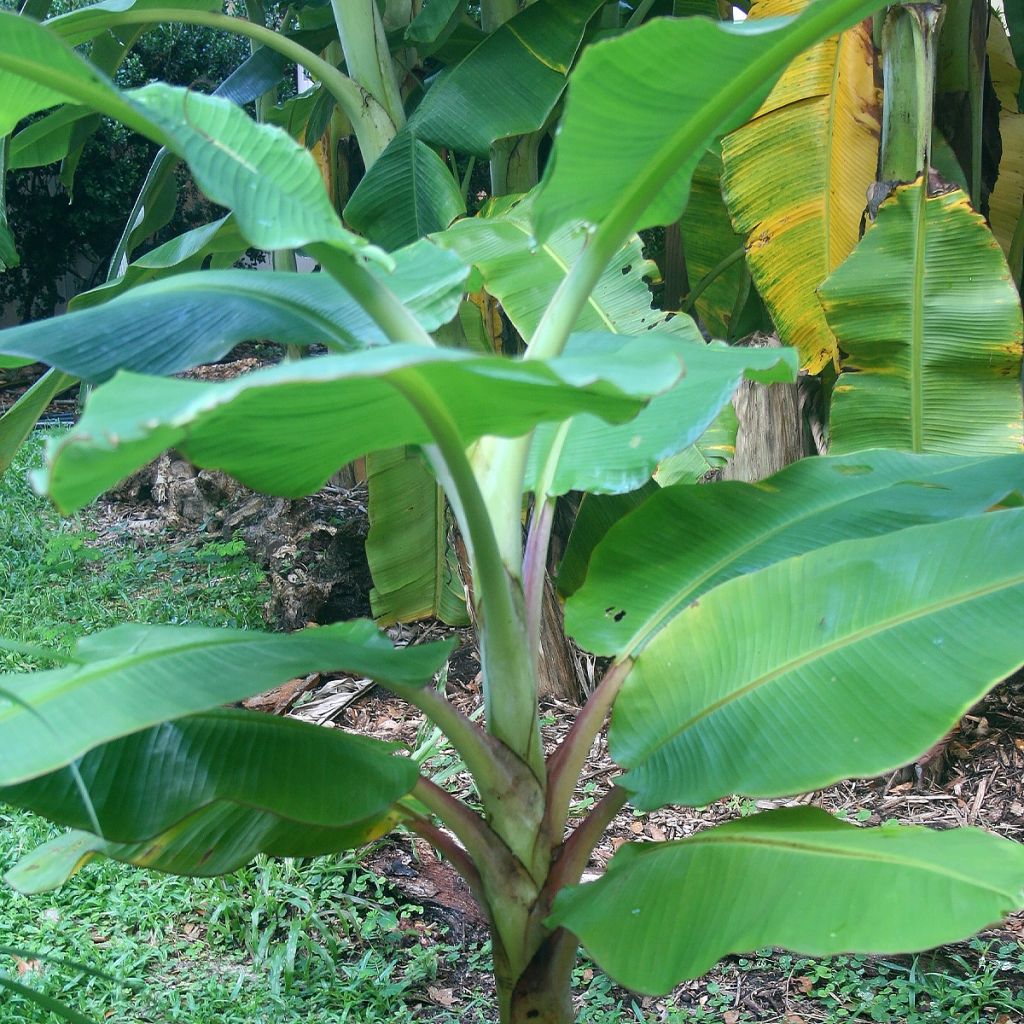

Musa japonica Tchetchenia - Bananier du Japon
Musa basjoo Tchetchenia - Hardy Banana
Musa basjoo Tchetchenia
Hardy Banana
Special offer!
Receive a €20 voucher for any order over €90 (excluding delivery costs, credit notes, and plastic-free options)!
1- Add your favorite plants to your cart.
2- Once you have reached €90, confirm your order (you can even choose the delivery date!).
3- As soon as your order is shipped, you will receive an email containing your voucher code, valid for 3 months (90 days).
Your voucher is unique and can only be used once, for any order with a minimum value of €20, excluding delivery costs.
Can be combined with other current offers, non-divisible and non-refundable.
Home or relay delivery (depending on size and destination)
Schedule delivery date,
and select date in basket
This plant carries a 24 months recovery warranty
More information
We guarantee the quality of our plants for a full growing cycle, and will replace at our expense any plant that fails to recover under normal climatic and planting conditions.
Would this plant suit my garden?
Set up your Plantfit profile →
Description
Musa basjoo 'Tchetchenia' is a magnificent Japanese banana tree, with beautiful foliage that is less sensitive to wind. This variety is cultivated for its highly ornamental appearance, bringing a real touch of exoticism to any flower bed. Slightly larger than the species, it also has thicker and more robust leaves, as well as a larger floral bud. Give it a prime location near an entrance or patio. Hardy down to -18°C (-0.4°F).
The Japanese Banana tree belongs to the Musaceae family. It is native to clear woods and forest edges in Japan with a tropical to subtropical, mild and humid climate. It is an herbaceous plant that has the size of a tree, reaching several metres in height for most varieties. The Banana tree does not have a trunk but a stipe, formed by the sheaths of leaves imbricated in each other. Its growth is rapid. The 'Tchetchenia' cultivar was recently selected in Belgium.
The plant is deciduous in winter, with all vegetation freezing, but it regrows in spring because the stump withstands severe frosts. At maturity, 'Tchetchenia' will measure about 3 to 4.5m (10 to 15ft) in all directions, depending on growing conditions. In summer, depending on the climate, large pale-yellow inflorescences may appear, protected by a brown bract in the shape of a leaf. The flowering will be followed by the formation of inedible bananas.
In the garden, 'Tchetchenia' can be planted in any region. It is hardy enough to be grown in open ground, with or without protection depending on the climate. It can be placed in isolation, in the centre of a lawn, or even better near a doorway, to evoke the beautiful mansions built on distant islands. It can also be planted within a bed of hardy plants with a tropical appearance, such as Beschorneria yuccoides, Melianthus major, Chamaerops humilis, Fatsia, Tetrapanax or Yuccas. It can also be grown in large pots, preferably outdoors. It alone serves as a decoration for a patio when it sits in a large container. In this use, it pairs well with other orangery plants, such as rose laurels, citrus trees, Chilean myrtle, mimosas, or Strelitzia reginae (bird of paradise).
Just like perennial plants, banana trees are dormant during winter: their above-ground parts dry up and die. Plants shipped during winter are therefore cut back to the ground (leaves and stems) by our teams to allow for better growth in spring.
Report an error about the product description
Musa basjoo Tchetchenia - Hardy Banana in pictures
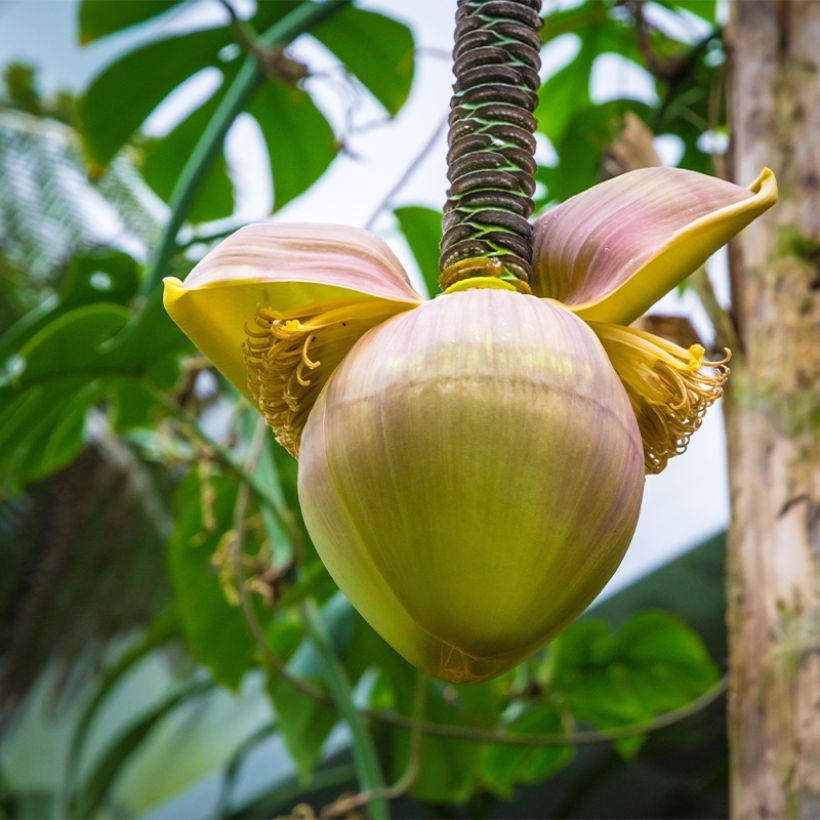

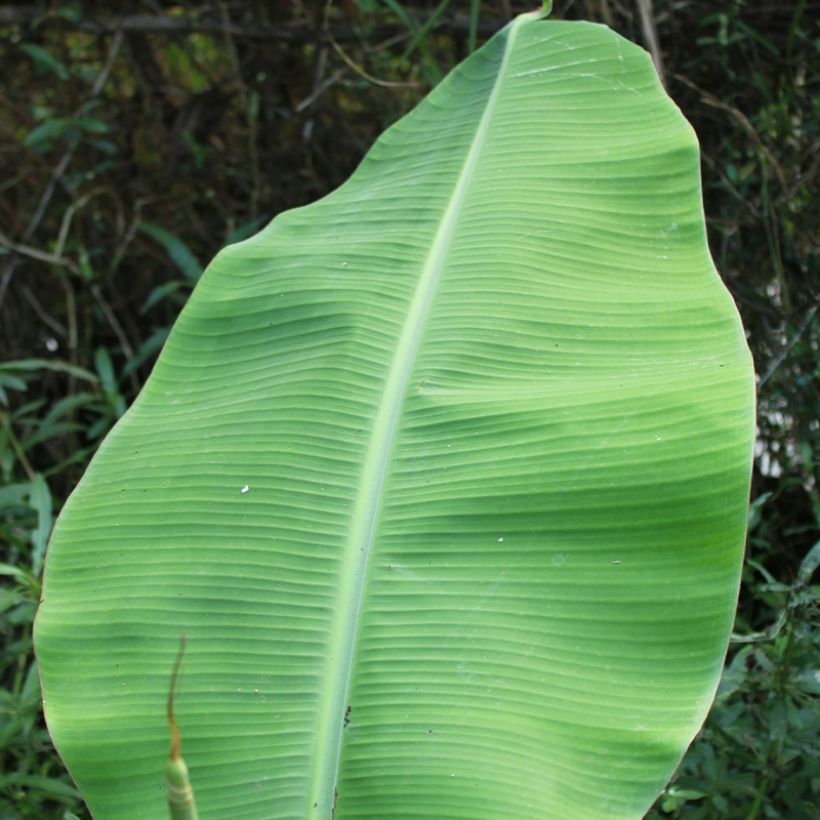

Plant habit
Flowering
Foliage
Botanical data
Musa
basjoo
Tchetchenia
Musaceae
Hardy Banana
Cultivar or hybrid
Other Musa - Banana tree
View all →Planting and care
Plant in spring or summer. Choose a sunny and sheltered location as the wind can damage the leaves. Soak the root ball in water for a few moments before planting. Dig a hole 3 times the volume of the root ball, and place a layer of gravel at the bottom to facilitate drainage. Cover with a mixture of garden soil, compost or potting soil, and sand. Place the root ball and cover with soil. Firmly press down and water generously.
In spring and summer, regularly apply organic fertiliser. Water regularly in summer (about 2 to 3 times a week). The Banana plant is not very susceptible to diseases and pests.
In winter, cut back the leaves along the trunk and protect the stump by placing a wire mesh filled with dead leaves along the pseudostem. Cover the top with a winter veil to prevent excess moisture. The Japanese Banana will regrow from the base or from the shoots formed around the base.
Pot cultivation is possible, taking into account the future height of the Banana plant (3 to 5m (10 to 16ft)). Repot every 2 years approximately. Bring the pot indoors before the first frost in a bright but sunless location. Mist the foliage if necessary or fill a saucer with moist clay pebbles as the Banana plant, a tropical plant, appreciates humid environments.
Planting period
Intended location
Care
This item has not been reviewed yet - be the first to leave a review about it.
Similar products
Haven't found what you were looking for?
Hardiness is the lowest winter temperature a plant can endure without suffering serious damage or even dying. However, hardiness is affected by location (a sheltered area, such as a patio), protection (winter cover) and soil type (hardiness is improved by well-drained soil).

Photo Sharing Terms & Conditions
In order to encourage gardeners to interact and share their experiences, Promesse de fleurs offers various media enabling content to be uploaded onto its Site - in particular via the ‘Photo sharing’ module.
The User agrees to refrain from:
- Posting any content that is illegal, prejudicial, insulting, racist, inciteful to hatred, revisionist, contrary to public decency, that infringes on privacy or on the privacy rights of third parties, in particular the publicity rights of persons and goods, intellectual property rights, or the right to privacy.
- Submitting content on behalf of a third party;
- Impersonate the identity of a third party and/or publish any personal information about a third party;
In general, the User undertakes to refrain from any unethical behaviour.
All Content (in particular text, comments, files, images, photos, videos, creative works, etc.), which may be subject to property or intellectual property rights, image or other private rights, shall remain the property of the User, subject to the limited rights granted by the terms of the licence granted by Promesse de fleurs as stated below. Users are at liberty to publish or not to publish such Content on the Site, notably via the ‘Photo Sharing’ facility, and accept that this Content shall be made public and freely accessible, notably on the Internet.
Users further acknowledge, undertake to have ,and guarantee that they hold all necessary rights and permissions to publish such material on the Site, in particular with regard to the legislation in force pertaining to any privacy, property, intellectual property, image, or contractual rights, or rights of any other nature. By publishing such Content on the Site, Users acknowledge accepting full liability as publishers of the Content within the meaning of the law, and grant Promesse de fleurs, free of charge, an inclusive, worldwide licence for the said Content for the entire duration of its publication, including all reproduction, representation, up/downloading, displaying, performing, transmission, and storage rights.
Users also grant permission for their name to be linked to the Content and accept that this link may not always be made available.
By engaging in posting material, Users consent to their Content becoming automatically accessible on the Internet, in particular on other sites and/or blogs and/or web pages of the Promesse de fleurs site, including in particular social pages and the Promesse de fleurs catalogue.
Users may secure the removal of entrusted content free of charge by issuing a simple request via our contact form.
The flowering period indicated on our website applies to countries and regions located in USDA zone 8 (France, the United Kingdom, Ireland, the Netherlands, etc.)
It will vary according to where you live:
- In zones 9 to 10 (Italy, Spain, Greece, etc.), flowering will occur about 2 to 4 weeks earlier.
- In zones 6 to 7 (Germany, Poland, Slovenia, and lower mountainous regions), flowering will be delayed by 2 to 3 weeks.
- In zone 5 (Central Europe, Scandinavia), blooming will be delayed by 3 to 5 weeks.
In temperate climates, pruning of spring-flowering shrubs (forsythia, spireas, etc.) should be done just after flowering.
Pruning of summer-flowering shrubs (Indian Lilac, Perovskia, etc.) can be done in winter or spring.
In cold regions as well as with frost-sensitive plants, avoid pruning too early when severe frosts may still occur.
The planting period indicated on our website applies to countries and regions located in USDA zone 8 (France, United Kingdom, Ireland, Netherlands).
It will vary according to where you live:
- In Mediterranean zones (Marseille, Madrid, Milan, etc.), autumn and winter are the best planting periods.
- In continental zones (Strasbourg, Munich, Vienna, etc.), delay planting by 2 to 3 weeks in spring and bring it forward by 2 to 4 weeks in autumn.
- In mountainous regions (the Alps, Pyrenees, Carpathians, etc.), it is best to plant in late spring (May-June) or late summer (August-September).
The harvesting period indicated on our website applies to countries and regions in USDA zone 8 (France, England, Ireland, the Netherlands).
In colder areas (Scandinavia, Poland, Austria...) fruit and vegetable harvests are likely to be delayed by 3-4 weeks.
In warmer areas (Italy, Spain, Greece, etc.), harvesting will probably take place earlier, depending on weather conditions.
The sowing periods indicated on our website apply to countries and regions within USDA Zone 8 (France, UK, Ireland, Netherlands).
In colder areas (Scandinavia, Poland, Austria...), delay any outdoor sowing by 3-4 weeks, or sow under glass.
In warmer climes (Italy, Spain, Greece, etc.), bring outdoor sowing forward by a few weeks.






























